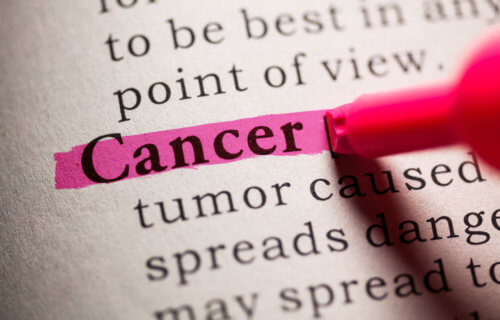NEW YORK — Do cancerous tumors change with age? A new study reveals younger cancer patients may need different treatment options. A team from the Icahn School of Medicine at Mount Sinai finds tumors in younger individuals have contrasting mutations to those of older counterparts. The results come from an analysis of 14 forms of the disease, ranging from skin, to bowel, breast, and brain cancer.
Study lead author Dr. William Lee says not all tumors are alike. His team compared genomic data of tumors from 1,757 adults under the age of 50 and 3,608 patients over 50.
“Overall, the results showed that each type of young adult tumor could be distinguished from older versions by a specific set of hallmarks,” Dr. Lee’s team writes in a media release.
Study authors discovered that proportions of common mutations in low-grade brain tumor cells shifted greatly depending on the patient’s age. On the other hand, endometrial tumors from young women had more mutations than those in older patients. These particular cancers develop in the uterus.
The team did find some common trends. Most notably, the results suggest young adults’ immune systems respond differently to most cancers. Dr. Lee says this includes the response of macrophage and dendritic cells in the body, which anti-cancer drugs often target.
For each tumor, researchers systematically compared genetic mutations, chromosomal alterations, and immune system factors between the age groups. They also examined each tumor’s weakness to a standard anti-cancer therapy.
The data comes from The Cancer Genome Atlas, a project funded by the National Cancer Institute. Study authors validated their findings using additional samples from the International Cancer Genome Consortium.
Is the BRAF gene the key?
They identified several differences between how young and older adult tumors tend to respond to various treatment options. These include drugs developed to fight mutations in the BRAF gene that fuels skin and bowel cancers.
Dr. Lee notes that their results suggest anti-BRAF drugs are particularly effective for a larger portion of young adult skin cancer patients in comparison than older ones with the same tumors. Conversely, older colon cancer patients appear to benefit more from anti-BRAF cancer therapies than younger adults. Researchers hope this may lead to the creation of personalized cancer treatment plans in the future.
Although some forms of the disease are in decline, certain cancers are on the rise among young adults. However, scientists note that most treatment options come from research on older patients. This creates an apparent knowledge gap that needs adjusting, Dr. Lee warns.
The study is published in the journal Cell Reports.
South West News Service writer Mark Waghorn contributed to this report.
